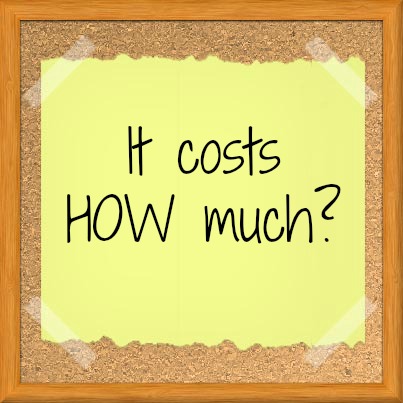[no_toc]OK, so “What IS the most confusing aspect of blogging?”asks Ryan Biddulph.
And here's his answer…..
You might suggest:
- Build a list.
- Publish helpful content.
- Befriend bloggers by being generous.
- Open multiple streams of income.
- Watch that sweet blogging cash pile up.
Right?
Wrong.
As I promote my eBook 12 Tips to Sprint from Employee to Entrepreneur I observe my blogging past. Years ago, I did the things noted above. But nothing happened. I made pennies. For weeks, I made zero dollars. Why? I worked hard DOING what top bloggers said I should do but I was energetically BEING a broke, fired security guard. I was still vibing in employee mode. I believed I would work X hours and get X paycheck based solely on my efforts. When I did not get paid, I got angry, I panicked and I struggled and failed because you cannot succeed as an entrepreneur if you think and feel like a frustrated employee. I would bail on a sound, proven system, struggle, and eventually I would start at square 1 again when I smartened up.
Unfortunately, bloggers are not salaried employees. We work generously, trust, relax and allow success to flow to us gradually.But if you work hard as can be while thinking and feeling like an employee you will experience the most confusing and frustrating aspect of blogging: you cannot shake, outfox or trick your predominant emotion-mindset.
Employee Thinking
Example; imagine working 8 hours daily for the next month. Over 30 days, you work 240 hours. Imagine publishing helpful content, building genuine connections, growing your email list and generously commenting on blogs from your niche.
Check your blog metrics at the end of the 30 day period. You see:
- 90 blog visitors
- $0.00 blogging profits
Imagine if you genuinely think-feel-vibe like an employee who expects a full salary based on your 240 hours of work. Panic sets in. You wasted your time! Not only that, you have bills to pay. Time to work harder. Time to push harder. Plus your employee husband or wife who only works for paychecks says you are wasting your time working for free. Pressure mounts.
Next month, you work 300 hours. Traffic = 1000 visitors. Profits = “$14.25”. What! 300 hours of busting your blogging tail for that! What gives? What are you doing wrong? Confusion reigns. Frustration reaches a boiling point. Many bloggers quit. Some begin spamming. Some struggle in the same cycle for years. Others quit for 3 months, begin blogging again and go through the quit-begin-quit-begin cycle for a decade or longer, never making more than $10 or $20 bucks per month for 10 years of their life.
I have seen this cycle played out thousands of times during my decade online. Heck; I lived it for a while.
How do you break the confusing, painful cycle?
Purge your employee fears and begin thinking, feeling and acting like an entrepreneur.
There Is No Pay Day
There is no blogging pay day like a Thursday pay check for employees. Accept this truth. Fall in love with the process of helping people, making friends and opening multiple streams of income. Work 40 to 100 hours weekly with no eye on profits, but with full attention and energy on having fun helping people and trusting the process.
After 2-3 months of generous daily work, maybe $4.50 flows to you today. $10 tomorrow. Maybe you see no income for the following 4 days but on the 5th day, you net $300 then the following day you make $20. See how it all adds up if you focus on improving your skills and exposure by being generous?
Face, embrace and release employee-conditioned fears involving being paid a salary for every hour or week you work. Releasing these fears moves you into an abundant, generous, trusting energy; the perfect starting point for becoming a successful blogger.
Confusion becomes clarity.
You are well on your way to laying the foundation for a successful blogging career.
But you had to leave employee thinking behind to think, feel and act like an entrepreneur who blogs.
Wise Words Indeed
Thanks to Ryan Biddulph of BloggingFromParadise.com for sharing his early blogging experiences, and the results of persistence.











